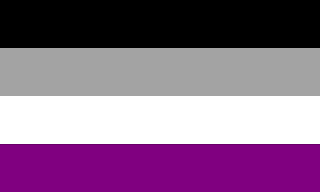FYS6-LEWIS-WRITING2
─── ・ 。゚☆: *.☽ .* :☆゚. ───
How to Not “Ace” Asexual Representation in Media
The sparse asexual representation in film and entertainment correlates with society’s pressure for people to perform sexually; thus, if someone doesn’t wish to perform their sexuality through sexual acts, they are deemed “unnatural.” In turn, the tv shows and movies often depict asexuals as people who are “nonhuman,” “unfeeling and robotic,” and “late-bloomers.” Examining the characters of Sheldon Cooper from The Big Bang Theory, Spock from Star Trek, and Jughead Jones from the CW’s Riverdale, the negative depictions of asexuality either persist or are stripped away from the character for the sake of marketability.
Sheldon Cooper is a character that the ace community has dubbed “ace-coded” from his lack of interest in sex or women compared to his other male leads: Howard, Raj, and Leonard, leading to many negative statements on what it means to be ace. His character finds joy in his scientific work and playing tabletop RPGs with his friends. His sexuality is discussed in the Season Two episode, ‘The Cooper-Nowitzki Theorem.’ Their neighbor, Penny, asks the group what Sheldon’s “deal” is and insists that “everyone has a deal,” implying that Sheldon is the strange one for not being sexually attracted to anyone. The men then poke fun of Sheldon and how he will reproduce in nonhuman ways: they state, “I believe Sheldon will eat an enormous amount of Thai food and split into two Sheldon’s” and “I think Sheldon might be the larval form of his species.” The “scripts” tied to asexuality is that ace people are “incomplete” without experiencing sex or sexual attraction, and thus open to ridicule and alienation from the dominant group who enjoys sex. The “type” that both Sheldon and Spock share are the Robot or the Strange Alien.
Spock’s reserved and logical character is often contrasted with Kirk’s charm and romantic relationships, justifying the “scripts” that ace people are tied to nonhumans and do not fit the norm of sexually active people. In Rowan Ellis’s video on The Rise of Asexual Representation, they describe Spock’s asexuality as tied to his species, being half-Vulcan, a species that “prioritizes restraint and suppressed emotions and passions” so next to the human Kirk, he is the outlier.
╭── ⋅ ⋅ ── ✩ ── ⋅ ⋅ ──╮
╰── ⋅ ⋅ ── ✩ ── ⋅ ⋅ ──╯
As the science and first officer of the USS Enterprise, his job is tied to being logical therefore people equate being robotic and unfeeling to being ace. In the episode ‘The Apple,” the characters come across a civilization called the Vaalians, who are asexual, and Spock talks about their culture: "You insist on applying human standards to non-human cultures. I remind you that humans are only a tiny minority in this galaxy... these people are healthy and they are happy. Whatever you choose to call it, this system works, despite your emotional reaction to it." Ellis then describes the episode’s message on asexuality being undermined because the Vaalians were being mind controlled by a computer god named Vaal, linking their asexuality with their “enslaved innocence.” This return of the “norm” hammers home that being ace should not be the norm for these human-like civilizations.
If the norm is that “sex sells,” look no further than Jughead Jones, a character who, in the comics, is canonically ace but is stripped of his asexuality in the TV adaptation to be in a romantic and sexual relationship with Betty Cooper. It was confirmed in a 2015 interview with comic writer Chip Zdarsky that his iteration of Jughead is ace, which many of the Archie comic fans accepted.
☾ ⋆*・゚:⋆*・゚
However, in the CW’s TV adaptation of the Archie comics, Riverdale, Jughead’s asexuality is nonexistent. The erasure of his identity stings even more, knowing that Roberto Aguirre-Sacasa, the chief creative creator of the comic and series developer of the show teased the character’s asexuality early on, "Rather than have everything fully formed — for instance, we're not going to start with [.] Jughead's asexuality or any of the things that have become canon." However, in a Glamour interview with Jughead's actor, Cole Sprouse, who had done research on asexuality when he got the role stated, "'I think in this show, he is not a romantic and not asexual.'" What tied the fandom to comic Jughead was that he found joy in things outside sexual or romantic relationships, which many could relate to. Throughout the TV show, however, Jughead is never given a chance to explore his asexual identity. To tease a point when Jughead “might” explore asexuality when there are sparse ace representations or characters are “ace-coded” is already damaging to the outside perceptions of what asexuality is.
Analyzing these characters, canonical or ace-coded, displays the ways the ace community has had to search for ace representations in mainstream media. Even so, in that media there are multiple occasions where being ace is dismissed or undermined.
─── ・ 。゚☆: *.☽ .* :☆゚. ───



I love this! You should post a link to this or just add it to the courseblog!
ReplyDelete